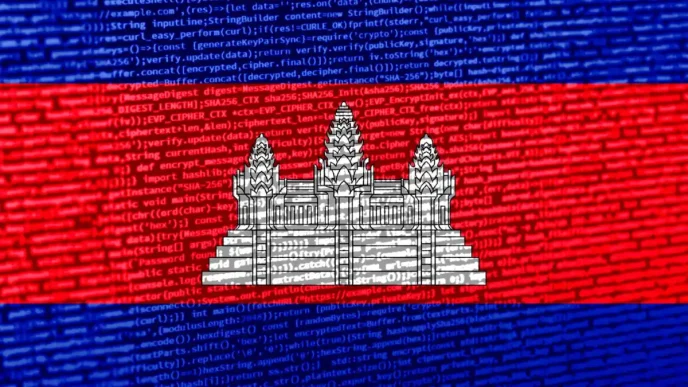A 54-year-old German national has been arrested in Thailand on allegations of operating a sophisticated child pornography network on the dark web, reportedly generating over 3.5 million baht ~US$100,000 through illicit activities. Identified only as Steffen, the suspect was detained in a raid on Tuesday in Bang Lamung district, Chonburi, following a tip-off from US Homeland Security Investigations. Thai authorities allege that Steffen managed two websites hosting over 5,000 explicit videos, primarily involving the exploitation of children, with a membership base exceeding 10,000 users worldwide.
The arrest, announced at a press conference at the Central Investigation Bureau (CIB) headquarters in Bangkok, marks a significant operation by Thailand’s Technology Crime Suppression Division (TCSD). Pol Maj-General Athip Pongsivapai, chief of the TCSD, confirmed that Steffen faces multiple charges, including possession and distribution of child pornography, production and trade of obscene materials, and importing and disseminating such content via computer systems. If convicted, he could face severe penalties under Thai law, which takes a stringent stance on cybercrime and child exploitation.
A Sophisticated Dark Web Operation
According to Thai police, Steffen’s operation relied on advanced technological infrastructure and cryptocurrency transactions to maintain anonymity. Users were required to purchase memberships starting at US$10 (£8), with payments made in cryptocurrency, which were then converted into Thai baht for personal use. Pol Col Supoj Phumyaem, TCSD Superintendent, revealed that Steffen confessed to operating the websites, leveraging programming skills developed during his career in Germany to build and manage the platforms.
During the raid on his condominium, authorities seized a laptop, a server, multiple mobile phones, and data storage devices containing over 140,000 files. Additionally, bank accounts, credit cards, and SIM cards were confiscated, pointing to a complex financial network. Investigations uncovered evidence of a money-laundering scheme involving multiple digital wallets, designed to obscure the flow of illicit funds.
The content hosted on Steffen’s websites reportedly included hidden camera footage and explicit videos exploiting children. This revelation has raised alarm among child protection advocates in Thailand and beyond, highlighting the pervasive challenges of combating digital exploitation in an era of encrypted online spaces.
International Collaboration and Legal Implications
The arrest underscores the importance of international cooperation in tackling cybercrime, with the initial tip-off originating from US Homeland Security Investigations. Thailand, a hub for regional tourism and digital connectivity, has increasingly become a focal point for transnational criminal networks exploiting technology. The country’s strict laws, including the Computer Crime Act B.E. 2550 (2007), provide a robust framework for prosecuting such offences, though enforcement across the dark web remains a formidable challenge.
Steffen has been handed over to the TCSD for further legal proceedings, with authorities indicating that additional charges may be filed as the investigation unfolds. While specific details about the victims featured in the videos remain undisclosed, Thai police are working with international partners to identify and support those affected by the exploitation.
The Broader Fight Against Child Exploitation Online
This case sheds light on the growing global crisis of child exploitation facilitated by the dark web, where anonymity tools and cryptocurrencies enable perpetrators to operate with relative impunity. Thailand has made strides in recent years to strengthen its cybercrime laws and enhance collaboration with foreign agencies, yet the scale of the problem often outpaces enforcement capabilities.
Child protection organisations have long warned that the proliferation of such content online perpetuates cycles of abuse, with victims often suffering lifelong trauma. In Thailand, where poverty and social inequality can exacerbate vulnerability, the exploitation of children for profit is a deeply entrenched issue that demands both technological and societal solutions.
The use of cryptocurrency in Steffen’s operation also highlights a persistent challenge for regulators worldwide. While blockchain technology offers transparency in tracking transactions, the pseudonymous nature of many digital currencies complicates efforts to identify and apprehend offenders. Thai authorities have indicated that they are working to trace the financial networks linked to Steffen’s websites, a process that could reveal further connections to organised crime.
Challenges and Calls for Action
Beyond the immediate legal proceedings, this arrest raises critical questions about how nations can better protect vulnerable populations in the digital age. Experts argue that while law enforcement plays a vital role, prevention must also focus on education, community support, and international policy coordination. In Thailand, initiatives to raise awareness about online safety and provide resources for at-risk children are gaining traction, though funding and outreach remain limited.
There is also a pressing need for technology companies to take greater responsibility in curbing the spread of illegal content. Platforms hosting encrypted communications or dark web access points are often exploited by criminal networks, yet accountability mechanisms remain inconsistent. Advocacy groups have called for stronger regulations and proactive monitoring, though such measures must balance privacy concerns with public safety.
As Steffen’s case progresses through the Thai legal system, it serves as a stark reminder of the hidden dangers lurking in the digital underworld. For now, the focus remains on ensuring justice for the victims and dismantling the networks that enable such crimes. Thai authorities have pledged to continue their efforts, but the battle against online child exploitation is far from over.
With over 10,000 members allegedly accessing Steffen’s websites, the scale of demand for such content is a sobering reality. If confirmed, the full extent of his operation may reveal even deeper systemic issues in the fight against cybercrime. Until then, this arrest stands as both a victory for law enforcement and a call to action for a global response to a borderless crime.














